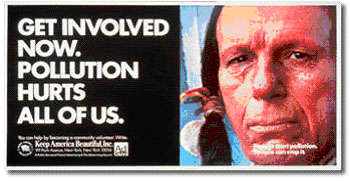Meanwhile, a dear friend of mine, sent me this email he received. In the day we hung and went to concerts together. After college, we lost touch, but caught up again on FB. Our lives went in divergent directions and we learned we don't always agree on stuff. BUT... our friendship superseded that. He sent me a note with the following email that in his own words, he read and immediately thought of me.
Guess what? I immediately thought of him, too. Thank you, D. How poignant it is to travel in time...
In the line at the store, the cashier told the older woman that plastic bags weren’t good for the environment. The woman apologized to her and explained, “We didn’t have the green thing back in my day.”
That’s right, they didn’t have the green thing in her day. Back then, they returned their milk bottles, Coke bottles and beer bottles to the store. The store sent them back to the plant to be washed and sterilized and refilled, using the same bottles over and over. So they really were recycled But they didn’t have the green thing back her day In her day, they walked up stairs, because they didn’t have an escalator in every store and office building. They walked to the grocery store and didn’t climb into a 300-horsepower machine every time they had to go two blocks.
But she’s right. They didn’t have the green thing in her day.
Back then, they washed the baby’s diapers because they didn’t have the throw-away kind. They dried clothes on a line, not in an energy gobbling machine burning up 220 volts – wind and solar power really did dry the clothes. Kids got hand-me-down clothes from their brothers or sisters, not always brand-new clothing.
But that old lady is right, they didn’t have the green thing back in her day.
Back then, they had one TV, or radio, in the house – not a TV in every room. And the TV had a small screen the size of a pizza dish, not a screen the size of the state of Montana. In the kitchen, they blended and stirred by hand because they didn’t have electric machines to do everything for you. When they packaged a fragile item to send in the mail, they used wadded up newspaper to cushion it, not styrofoam or plastic bubble wrap. Back then, they didn’t fire up an engine and burn gasoline just to cut the lawn. They used a push mower that ran on human power. They exercised by working so they didn’t need to go to a health club to run on treadmills that operate on electricity.
But she’s right, they didn’t have the green thing back then
They drank from a fountain when they were thirsty, instead of using a cup or a plastic bottle every time they had a drink of water. They refilled pens with ink, instead of buying a new pen, and they replaced the razor blades in a razor instead of throwing away the whole razor just because the blade got dull. But they didn’t have the green thing back then. Back then, people took the streetcar and kids rode their bikes to school or rode the school bus, instead of turning their moms into a 24-hour taxi service. They had one electrical outlet in a room, not an entire bank of sockets to power a dozen appliances. And they didn’t need a computerized gadget to receive a signal beamed from satellites 2,000 miles out in space in order to find the nearest pizza joint.
But they didn't have the green thing back then!
Is the green thing really why you do or don't choose to make different choices? Do you think the green thing is a free pass to disregard our stewardship for the planet? Do you think that the green thing is keeping you from truly caring?
Maybe it's time to return to the days prior to... the green thing!











